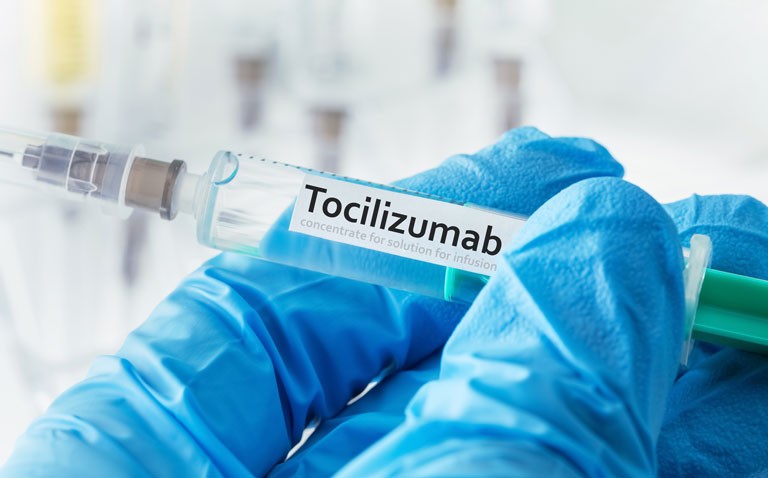The anti-interleukin-6 monoclonal antibody tocilizumab is used for the management of patients with rheumatoid arthritis but evidence is mounting for its benefit as an add-on therapy in patients with COVID-19.
Among patients hospitalised with COVID-19, the disease can progress to hypoxic respiratory failure which is associated with systemic inflammation and the release of pro-inflammatory cytokines including interleukin-6 (IL-6). Hypoxic respiratory failure requires prolonged ventilatory support and systemic corticosteroids but whether additional immunomodulatory therapy is of benefit remains unclear. Through blockage of IL-6 signally, tocilizumab represents an effective immunotherapy but evidence of its benefit in COVID-19 to date has been mixed. The randomised evaluation of COVID-19 therapy (RECOVERY) trial was established to examine the efficacy of a range of interventions for hospitalised patients infected with the virus and has several different arms, one of which includes the use of tocilizumab. Any patient admitted to hospital because of COVID-19 is eligible for inclusion into the RECOVERY trial if they have either clinically suspected or laboratory confirmed COVID-19 and no medical history which, in the opinion of the treating physician, might put them at a significant risk if they participated in the trial. To be considered for treatment with tocilizumab, patients should have evidence of clinical deterioration of COVID-19 defined by an oxygen saturation less than 92% or receiving oxygen therapy, at which point they are randomised to usual care or tocilizumab as a single intravenous dose (based on the patient’s weight) over 60 minutes. A second dose can be administered the following day, based on the opinion of the treating physician. The primary outcome for the trial is all-cause mortality 28 days after randomisation.
Findings
Between April 2020 and January 2021, 2022 patients with a mean age of 63.6 years (66% male) were given tocilizumab and 2094 assigned to usual care. At the time of randomisation, most patients (45%) were in receipt of no additional support other than oxygen though 41% required non-invasive respiratory support and the majority (82%) of patients in both groups were already receiving systemic corticosteroids. The interim results demonstrated a significant reduction in mortality among those assigned to tocilizumab compared to usual care (29% vs 33%) and use of the drug was associated with a higher probability of being discharged alive within 28 days (54% vs 47%). Furthermore, among those not on invasive mechanical ventilation at baseline, there was a reduction in the risk of progression to ventilation compared to usual care (33% vs 38%).
The authors concluded that in patients with severe COVID-19, tocilizumab reduced mortality and the need for invasive mechanical ventilation and that these benefits are additional to the use of systemic corticosteroids.
Citation
The RECOVERY Collaborative Group. Tocilizumab for COVID-19. MedRxiv https://doi.org/10.1101/2021.02.11.21249258










